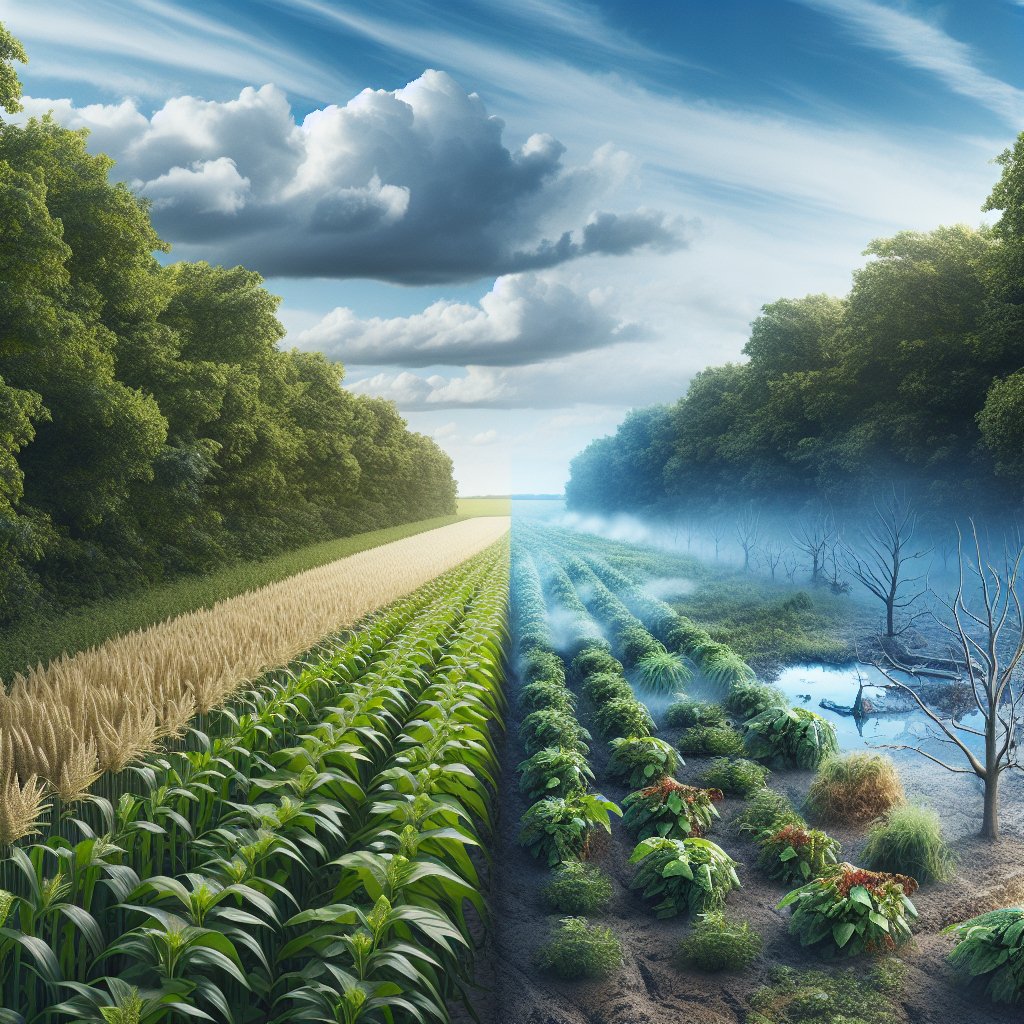The impact of pesticides on farming and the environment is a critical topic that has garnered significant attention in recent years. As agricultural practices evolve to meet the demands of a growing global population, the use of pesticides has become a common method for enhancing crop yields and protecting plants from pests and diseases. However, the implications of pesticide use extend beyond the fields, affecting ecosystems, human health, and the sustainability of farming practices. This article explores the multifaceted effects of pesticides, examining both their benefits and drawbacks, as well as potential alternatives that can lead to more sustainable agricultural practices.
Understanding Pesticides and Their Role in Agriculture
Pesticides are chemical substances designed to prevent, destroy, or control pests that threaten crops. They can be classified into several categories, including insecticides, herbicides, fungicides, and rodenticides. Each type targets specific pests, helping farmers protect their crops and maximize yields. The introduction of synthetic pesticides in the mid-20th century revolutionized agriculture, allowing for increased production and efficiency. However, the reliance on these chemicals has raised concerns about their long-term effects on the environment and human health.
The Benefits of Pesticides in Farming
Pesticides play a crucial role in modern agriculture, offering several benefits that contribute to food security and economic stability:
- Increased Crop Yields: Pesticides help protect crops from pests and diseases, leading to higher yields. This is particularly important in regions where food production must keep pace with population growth.
- Cost-Effectiveness: By reducing crop losses, pesticides can lower the overall cost of production for farmers. This economic benefit is vital for maintaining profitability in a competitive market.
- Quality of Produce: Pesticides can enhance the quality of fruits and vegetables by preventing damage from pests, resulting in better-looking and longer-lasting produce.
- Weed Control: Herbicides are essential for managing weeds that compete with crops for nutrients, water, and sunlight, ensuring that crops can thrive.
Environmental Concerns Associated with Pesticide Use
Despite their benefits, the use of pesticides raises significant environmental concerns. The following issues highlight the potential negative impacts:
- Soil Health: Pesticides can disrupt the natural balance of soil microorganisms, leading to reduced soil fertility and health. Healthy soil is essential for sustainable agriculture, as it supports plant growth and nutrient cycling.
- Water Contamination: Pesticides can leach into groundwater or run off into surface water, contaminating drinking water supplies and harming aquatic ecosystems. This contamination poses risks to both human health and biodiversity.
- Biodiversity Loss: The widespread use of pesticides can lead to a decline in non-target species, including beneficial insects, birds, and other wildlife. This loss of biodiversity can disrupt ecosystems and reduce resilience to environmental changes.
- Resistance Development: Over time, pests can develop resistance to certain pesticides, leading to a cycle of increased chemical use and the need for stronger, potentially more harmful alternatives.
Alternatives to Conventional Pesticides
As awareness of the negative impacts of pesticides grows, there is a pressing need for alternative pest management strategies that are both effective and environmentally friendly. Several approaches are gaining traction in the agricultural community:
Integrated Pest Management (IPM)
Integrated Pest Management (IPM) is a holistic approach that combines various strategies to manage pests while minimizing the use of chemical pesticides. Key components of IPM include:
- Monitoring and Identification: Regular monitoring of pest populations helps farmers identify problems early and determine the most effective management strategies.
- Biological Control: Utilizing natural predators or parasites to control pest populations can reduce the need for chemical interventions.
- Cultural Practices: Implementing practices such as crop rotation, intercropping, and proper sanitation can help prevent pest outbreaks.
- Targeted Chemical Use: When pesticides are necessary, IPM encourages the use of targeted applications that minimize environmental impact.
Organic Farming
Organic farming emphasizes the use of natural inputs and practices to maintain soil health and manage pests. Organic farmers often rely on:
- Natural Pesticides: Organic-approved pesticides derived from natural sources can be used to manage pests while minimizing environmental harm.
- Crop Diversity: Growing a variety of crops can reduce pest pressure and improve resilience against diseases.
- Soil Management: Practices such as composting and cover cropping enhance soil health, promoting a balanced ecosystem that can naturally suppress pests.
Technological Innovations
Advancements in technology are also paving the way for more sustainable pest management practices. Innovations include:
- Precision Agriculture: Utilizing data and technology to apply pesticides more accurately can reduce overall usage and minimize environmental impact.
- Genetic Engineering: Developing pest-resistant crop varieties through genetic modification can reduce the need for chemical pesticides.
- Biopesticides: These are derived from natural materials, such as plants, bacteria, and minerals, and can provide effective pest control with lower environmental risks.
Conclusion
The impact of pesticides on farming and the environment is a complex issue that requires careful consideration. While pesticides have played a significant role in increasing agricultural productivity, their negative effects on ecosystems, human health, and biodiversity cannot be overlooked. As the agricultural sector continues to evolve, embracing sustainable practices such as Integrated Pest Management, organic farming, and technological innovations will be essential in mitigating the adverse effects of pesticides. By prioritizing environmental health and sustainability, the farming community can work towards a future that balances productivity with ecological integrity.




